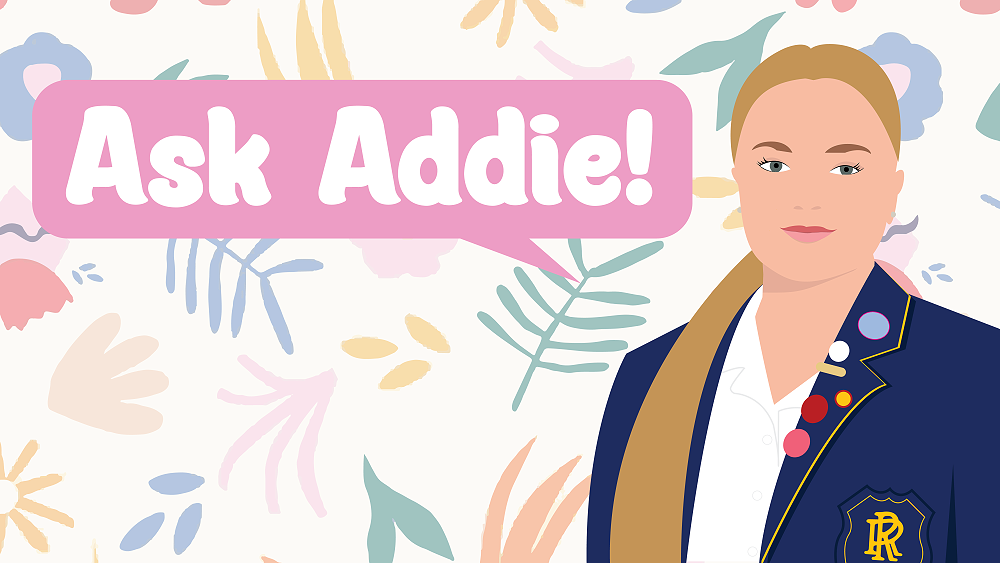
Care and Development
Like many secondary schools, Term 1 at Rangi Ruru, has a strong focus on sport: school athletics, swimming sports, the weekly interschool competitions, quad tournament, and cross country! We know that sport can bring a lot of joy, but it can also create challenges. This week, Addie Voight, Head of Wellbeing, teamed up with Charlotte O’Reilly, Head of Sport, to give some advice on how to make the most of these sporting opportunities.
Below Addie and Charlotte's update, is some important information about mobile phones, PDP's and the Student Digital Citizenship Agreement 2024.

Kia ora koutou!
I am back for another round of tips and tricks for your journey this year at Rangi Ruru! This week Charlotte and I are talking sport. We will explore the benefits of getting involved, the pressures, the successes, and the failures. We are hoping this week’s column will provide ideas and support for anyone playing a sport, but these ideas also apply to life in general.
Tips and Tricks for Managing and Understanding Sport
Get involved in sport at Rangi Ruru: Firstly, as discussed last time, one of the crucial pieces of advice I can give is to put yourself out there. We hope that you are all challenging yourself and giving everything a go - we hope everyone gave swimming prelims a go and tried as many events as possible at school athletics. But if not, there is still time, have a go at cross country; try the Fun Run with some friends, you might surprise yourself and actually have fun!
Managing the pressure and expectations of sport: You need to focus on yourself and your mindset. Mentally you need to be in a positive place to begin with, and not worrying about how others around you are performing. Sometimes it can be best to turn your focus to something else and distract yourself. You want to get the most out of your sport so that you not only ‘do well’ but enjoy it and it makes you happy.
Finding balance: Communication is key, with yourself and others. Have a calendar or diary with everything planned to the smallest detail. Talk to people and your coaches. (Addie: I developed my own diary this year and it has been a life saver to balance and control what is happening when.) Get organised the night before so you don’t waste any time. Learn how to say no when it is too much. Moreover, figure out what it takes for you to relax and make sure you take time to just do nothing. (Addie: I struggle with this but am teaching myself that it is okay to have a break and just pause.)
Coping with failures and acknowledge successes: The first step is acknowledging mistakes, why did they happen and how can they be prevented. Learn from these - don’t make the same mistake twice. Remember, the lows enable you to appreciate the highs. Conversely, it is vital to acknowledge success and realise it is not always about the outcome, but more importantly about the path you took to get there. Think about how your journey has impacted not only your sport, but who you are.
Over the course of the year, I am going to set you some challenges. The first challenge I want to set you is not necessarily related to sport but it is still about challenging yourself. I want to challenge everyone to try and say hello and make conversation with or sit with someone you don’t normally interact with. You might make a new friend!
In case you missed it, I wrote a piece in the last InTouch with tips and tricks for starting the school year, putting yourself out there and making the new school year a positive one.
Until next time

Building and Bonding Day
Written by Year 10 Student, Amelie De Luca
'On Thursday, 8 February, Year 10 undertook our first challenge of the year. As newly formed tutor groups, we were all feeling a little nervous and uneasy about the start of the year. We needed a challenge to bring us together. This challenge arose in the form of a police led obstacle course, where each tutor group had to quickly learn to collaborate and support each other.
The obstacle course was 200 metres long and consisted of challenges such as a wall to scale, a fence to climb, a window to jump through and a beam to balance on. Safe to say, it put us through our paces.
At first, we undertook the course in groups of four. Many of us grouped with people we hadn’t had the opportunity to work with before. Together we lifted, we laughed, and we cheered each other on, competing against the clock and our fellow classmates to complete the course.
After a first run through, the instructors rose the bar even higher. As a whole tutor group, we had to carry two benches through the whole obstacle course without letting them touch the ground or equipment.
After some tactical discussions, a whole lot of perseverance and unwavering words of encouragement towards each other, we succeeded. Overall, the session was a huge success - bonding us through mental and physical exertion and helping to build our 2024 tutor group mana.
For me, this session represented so much more than one hour of challenge. It made me realise the importance of a helping hand, a supportive word or a powerful boost to allow you to scale those slightly too high walls. For Year 10, this is what this year is all about, because none of us can do it all alone.'


Mobile Phones
Phones can be helpful in encouraging social interaction, finding posts and videos that amuse, provoke thought, support learning and development.
Students need a break from technology and digital connection. Involve your daughter in agreeing rules so that she can:
- have hobbies,
- liberate their passions,
- sleep better - research tells us that night-time access undermines one’s ability to sleep and also leads to a decline in self-esteem when we make comparisons between ourselves and what are often staged and curated posts online,
- be active,
- talk to family members, and
- get revision and homework done, amongst other things
It is important that you have open conversations with your children about this and continue to develop their understanding of the potentially harmful nature of spending significant time online.
Model behaviour and consider how much of an interference on face-to-face interaction your phone might be contributing to.
Phones can be great distractions but talk about social media algorithms (time spent, demographic profile, engagement etc to decide what to show you next) and how they can be both helpful and harmful. Endorse the message that overdosing online is unhealthy, that they are being manipulated to make money off their attention and that their digital footprint has the potential to affect them both now and in their future pathways.
As partners in you daughters’ growth and development, we have a shared responsibility in creating an environment where they feel understood, valued and secure.
PDPs (Personal Development Plans)
Parents, you will receive an email with a link through which you can book a time to meet with your daughter’s tutor on Tuesday, 12 March. Please note that it is optional for parents of Years 12 and 13 ākonga to attend with their daughters. If you are not attending with them, they will liaise with their tutor about a time to meet.
If you don’t receive the email, please check your junk box as some of your ISPs filter us out.
More information on PDPs is here.
Student Digital Citizenship Agreement 2024
We all know that the digital world provides our rangatahi/ young people with lots of opportunities but the potential for harm is real.
Most students have now agreed to our Digital Citizenship Agreement via an eform in FACTS (our student management system). They will be able to show you this on their laptop at home.
Ultimately, they have agreed to:
Engage positively: what you say and do online can affect everyone! Avoid bullying, harassment and online abuse and learn how to take positive steps if others don’t.
Know your online world: be curious, learn new things but be aware of risks and how to protect yourself.
Choose consciously: think before you act - the choices you make online can last forever.
For further guidance to support your daughter with online activity, refer to the 'Wellbeing - Digital Life' section on the Hub.
Amy Martin-Bowen
Assistant Principal - Care & Development
